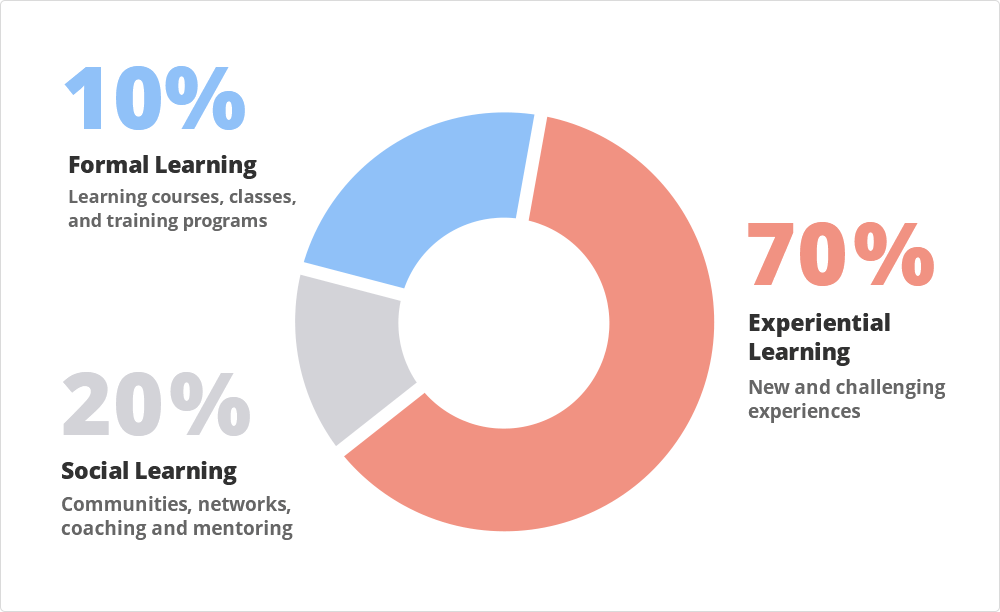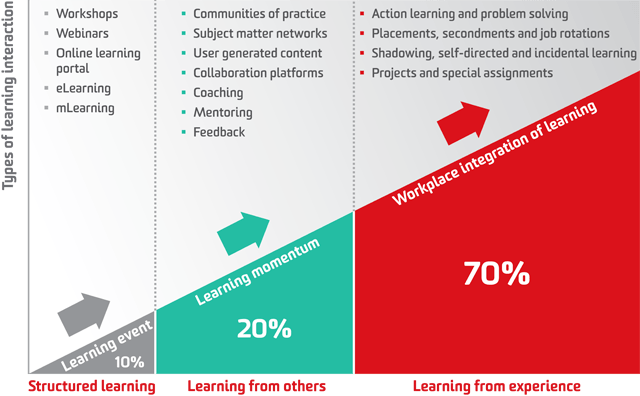Search for...
#70:20:10 Bookmarks
Published 70:20:10 Bookmarks
 70:20:10 Learning Model: Improve Workplace Performance
70:20:10 Learning Model: Improve Workplace Performance
Learn how to use the 70:20:10 learning model for your corporate training and how to upgrade it with modern technologies.
 What Is Social Learning And How Can You Use It To Foster Collaborative Learning
What Is Social Learning And How Can You Use It To Foster Collaborative Learning
Wanted to know What is social learning and how can you use it to foster collaborative learning. As learning professionals, most of us are familiar with the 70:20:10 Model for Learning and Development that describes how learning happens.
 The 70:20:10 Summit - eLearning Industry
The 70:20:10 Summit - eLearning Industry
We would like to invite you to our Annual 70:20:10 Summit which will take place in Eindhoven, The Netherlands on 11 April 2018.
 70:20:10 Great theory, but how does it work?
70:20:10 Great theory, but how does it work?
Let’s put the numbers aside for the moment and agree that 70:20:10 works. Our question is how to apply it to your corporate training software. I’m sure this won’t surprise everyone, but we Corporate Training Software vendors have less implementation experience than most of you. We are not L&D professionals, trainers or assessors.
 How to support authors that have no experience?
How to support authors that have no experience?
Corporations are moving to ‘sustainable e-Learning development’. They are looking for new, more agile ways of creating e-Learning to meet the on-demand requirements from the business si…
How to use the new 70:20:10 rule for knowledge sharing
I discovered a new rule for knowledge sharing, the 70:20:10 rule. In any given company 10% of the employees is willing to actively share their knowledge. About 20% of the employees is willing to sh…
When you are curating content without a story you are not sharing your knowledge. You are sharing content. All curators do make a selection and share that. But what I miss is the story, the context…
 70:20:10 and user generated learning: no way!
70:20:10 and user generated learning: no way!
I’m talking to learning managers each day about the 20 in 70:20:10. About knowledge sharing and about user generated learning. I have listed their top10 objections and my response
 INFOGRAPHIC: Heroic Journeys To High Performance
INFOGRAPHIC: Heroic Journeys To High Performance
What does 70:20:10 & continuous learning have to do with Sherlock Holmes, Buffy the Vampire Slayer, Harry Potter and other heroic fictional characters? Possibly nothing... unless you believe this infographic.
 The 70:20:10 Lens
The 70:20:10 Lens
In 70:20:10 for trainers I advocated the use of the 70:20:10 model by L&D professionals as a lens through which to view their instructional design. The excellent comments on my post, and insightful blog posts by others – notably Mark Britz, Clark Quinn and Arun Pradhan – have prompted me to think deeper about my premise.
Submit Bookmark






